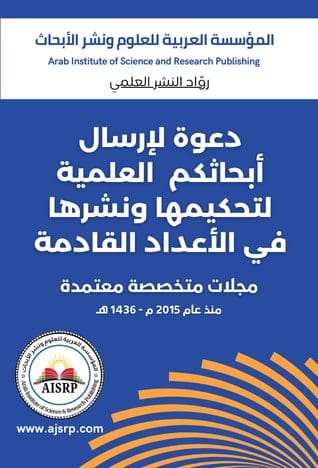Thinking and Emotion in Perspective of Cognitive Neuroscience
Abstract:
Neuroscience has a role in understanding and realizing the mechanisms of thinking and emotions through the results of brain structure functions. Through sensory information in the parts of brain, different thinking skills can be developed by learning and training, such as fluency, flexibility and originality, as well as the development of different types of emotions. The coding of information and the communication between neurons helps to improve and develop those skills and information. Memory has an importance to reveal the relationships, composition and use them thought processes and emotion responses. Also, the modeling of the human brain is important to build thinking abilities at different levels that accompanied by emotions and feelings according to the situations and environments in which the individual lives and trains. Positive environments enable the individual to create stimulating experiences of thinking that are motivated to achieve his goals and to his psychological compatibility with his environment. Therefore, this paper deals with some researches results of cognitive neuroscience to interpret some thinking and emotion process
Keywords:Cognitive Neuroscience, Thinking, Emotion.
الملخص
وبينت نتائج الدراسة أن تحديد المعلومات الدقيقة عن تفكير الفرد وعاطفته من منظور العلوم العصبية المعرفية يساعد على إدراك أوسع لاستجابات وسلوكيات الفرد وتحسين أداء الفرد وتطويره. وأن نتائج أبحاث العلوم العصبية يدعم علم البرمجة العصبية في تفسير سلوكيات الفرد الناتجة عن التفكير والعواطف. كما بينت وجود علاقة وثيقة بين العلوم العصبية المعرفية والعلوم الاجتماعية والإنسانية، كعلم النفس التربوي، في تفسير معلومات واستجابات التفكير والعواطف لدى الفرد. ويوجد تكامل بين التفكير والعواطف في استجابات الفرد وكل منهما يتحكم في الآخر في المواقف المختلفة. وأن للذاكرة أهمية في كشف العلاقات وتكوينها واستخدامها في عمليات التفكير واستجابات العواطف. كما أن النمذجة التي يكونها الدماغ البشري لها أهمية في بناء قدرات التفكير بمستوياتها المختلفة والمصحوبة بالعواطف والمشاعر حسب المواقف والبيئات التي يعيشها الفرد ويتدرب عليها، واستنادا للنتائج أوصى الباحث بتضمين نتائج أبحاث العلوم العصبية المعرفية، من بينها نتائج التفكير والعاطفة، في طرق التدريس والمناهج الدراسية في جميع المراحل التعليمية والمواد الدراسية المختلفة. واقتراح استراتيجيات تدريسية قائمة على نتائج أبحاث العلوم العصبية المعرفية في التفكير والعاطفة
الكلمات المفتاحية: التفكير، العاطفة، منظور، العلوم العصبية المعرفية
الباحث /
علي بن سالم بن راشد الغافري
كلية التربية والآداب || جامعة صحار || سلطنة عُمان
DOI: 10.26389/AJSRP.A250818 عرض البحث كامل عرض العدد كامل



